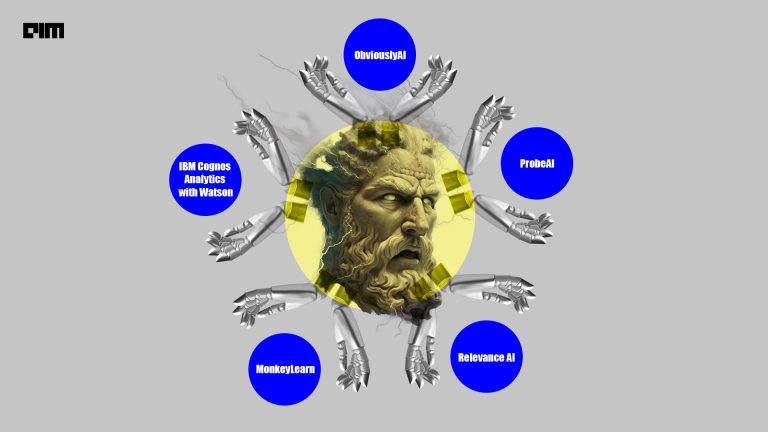|
Listen to this story
|
MongoDB loves India. Boris Bialek, the field CTO of MongoDB, was in Bengaluru earlier this month and in an exclusive interaction with AIM, he said: “India’s market momentum is tremendous. The growth is huge, and we have over 3,000 customers here. We experience millions of downloads every month and have an exceptionally active developer community here.”
In India, MongoDB, the king of the NoSQL database, serves unicorns, smaller startups, and digital native companies, including those specialising in generative AI and digital transformation initiatives. Some of its notable customers include Zomato, Tata Digital, Canara HSBC Life Insurance, Tata AIG, and Devnagri.
India cares about data security like no other. With data and AI sovereignty on the rise, there’s a demand for keeping data within a controlled environment, either on-premises or in a cloud, but not over public APIs. This is where MongoDB comes in—it acts as a bridge, integrating various components into a cohesive system.
“Our approach emphasises simplicity, transparency, and trust. We make things clear around how vectors are used and provide transparency in data usage. This level of clarity addresses concerns about system trustworthiness and what is being built,” he added.
Other NoSQL databases like Redis and Apache Cassandra are also widely used by Indian developers. The former has over 12 million daily downloads and derives 60% of its revenue from national database projects. Apache Cassandra has a strong presence of 14.95%, with companies like Infosys, Fujitsu, and Panasonic using it. Amazon DynamoDB holds a market share of approximately 9.5%.
Focuses on Real-time
“We no longer see ourselves just as a NoSQL database. We’re part of a larger picture, providing services for banking transactions, multi-document handling, search capabilities, and integrating edge components for global manufacturing lines,” said Bialek.
This is where the concept of a ‘developer data platform’ emerges, and it’s a significant change the team has observed over recent years. It’s about accelerating integration without the need to maintain multiple disconnected systems.
“We’re discussing real-time data. Everything today demands immediacy, whether it’s a UPI transaction that needs decisions in milliseconds or providing individualised, real-time data like online stock trades,” he added. Behind this is a vast amount of JSON data, which is what the JSON document model in MongoDB is about.
Several companies achieved remarkable improvements in efficiency and customer satisfaction through MongoDB solutions. Bialek spoke about an Italian energy company that was able to slash its service desk response time from a day to two minutes!
Meanwhile, a German company pioneered chatbot systems utilising self-trained LLMs for tailored client interactions, such as rapid insurance claim processing. In the retail sector, data analysis led to a 50% reduction in return shipments for an online shoe retailer by suggesting optimal shoe sizes, demonstrating the mutual benefits of predictive services for customers and businesses.
Generative AI Struggles
During recent customer interactions, Bialek noted several challenges regarding speeding up and implementing new technology like generative AI.
“No matter if the company is small or large, the main challenge is accelerating business processes. Developers are in high demand, so the focus is on how fast we can create new platforms like payment systems and integrate new technologies like UPI LITE with limited help. We’re collaborating with major payment providers to address these challenges,” Bialek added.
Secondly, customers are experiencing a stark difference between companies that are aggressively implementing generative AI and have clear directions, vis à vis others that are still figuring it out. So, MongoDB assists them in understanding and applying use cases.
MongoDB to the Rescue
In November last year, the company added new features to MongoDB Atlas Vector Search that offers several benefits for generative AI application development.
“The feedback has been overwhelmingly positive, citing its ease of use. Some clients have even built solutions in half a day, a task that would have previously taken six months and a consultant,” Bialek commented.
Furthermore, LLMs require storage for vectors, and MongoDB simplifies access to these. The emphasis is on delivering a holistic solution by integrating data layers, applications, and underlying technologies.
In January of this year, MongoDB partnered with California-based Patronus AI to provide automated LLM evaluation and testing for business clients. This partnership merges Patronus AI’s functions with MongoDB’s Atlas Vector Search tool, creating a retrieval system solution for dependable document-based LLM workflows.
Customers can build these systems through MongoDB Atlas and utilise Patronus AI for evaluation, testing, and monitoring, enhancing accuracy and reliability.
“I would say that MongoDB is a bit like the glue in the system, bringing everything together in a straightforward manner,” said Bialek.
What’s Next?
Going forward, Bialek noted that the primary goal is to focus on improving user-friendliness through simplicity, real-time data processing, and application development.
“We are releasing a new version of our product this year, as we do annually. We’re currently showcasing our Atlas Streams in public preview, which is crucial for real-time streams, processing, and vector search integration. There’s a lot more in development, too,” concluded Bialek.
Read more: Is MongoDB Vector Search the Panacea for all LLM Problems?



















































































